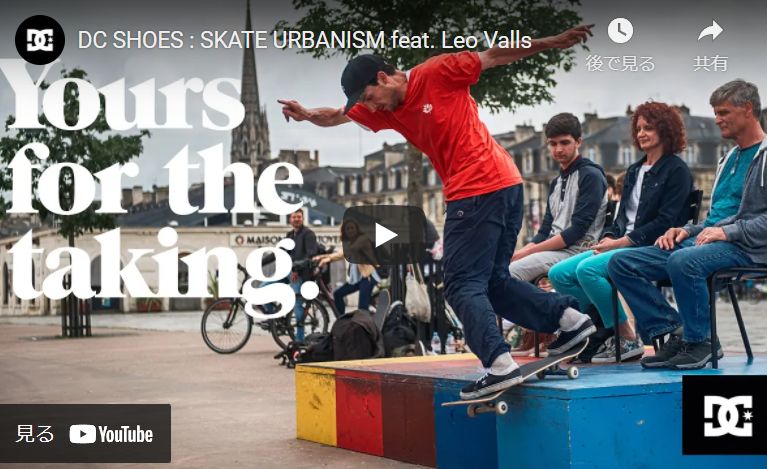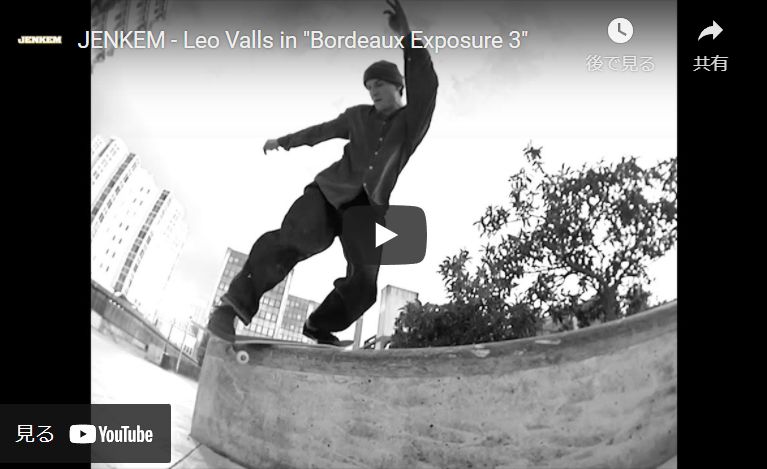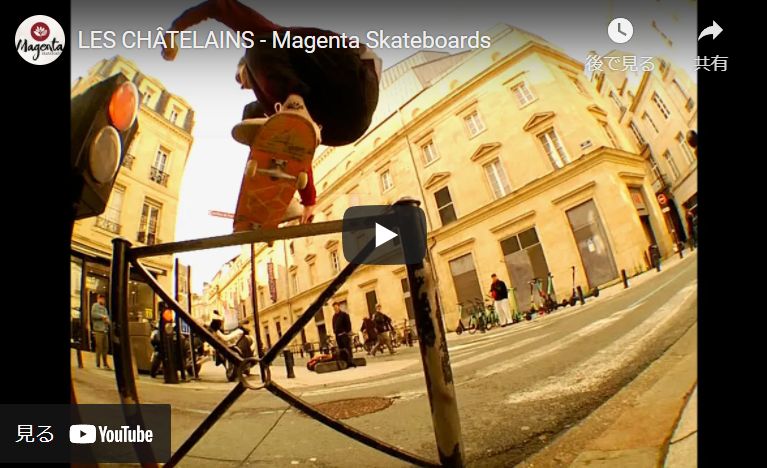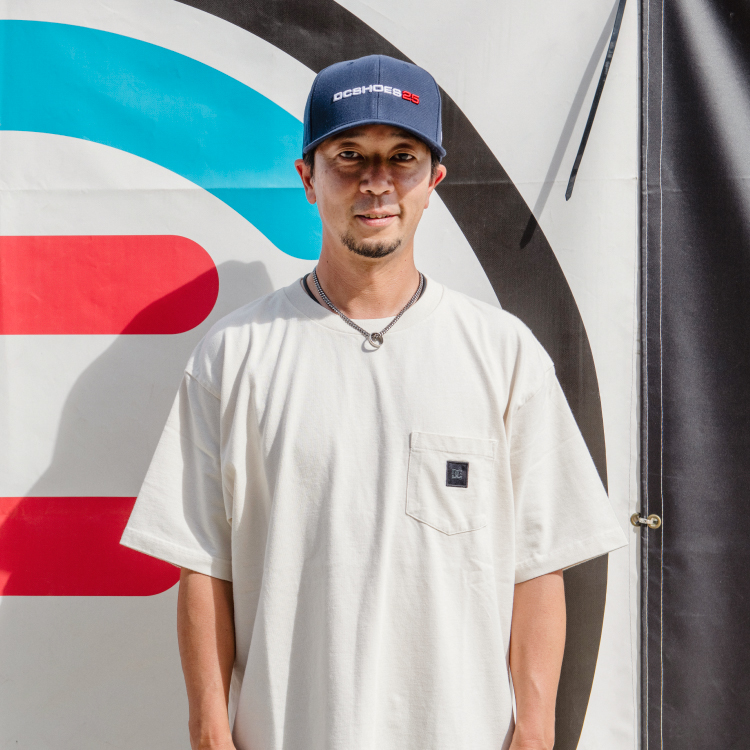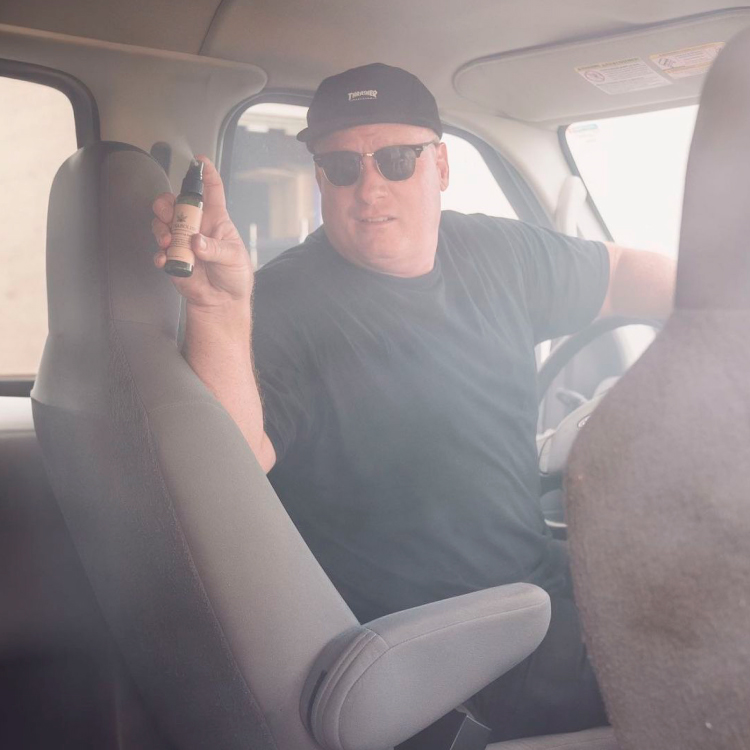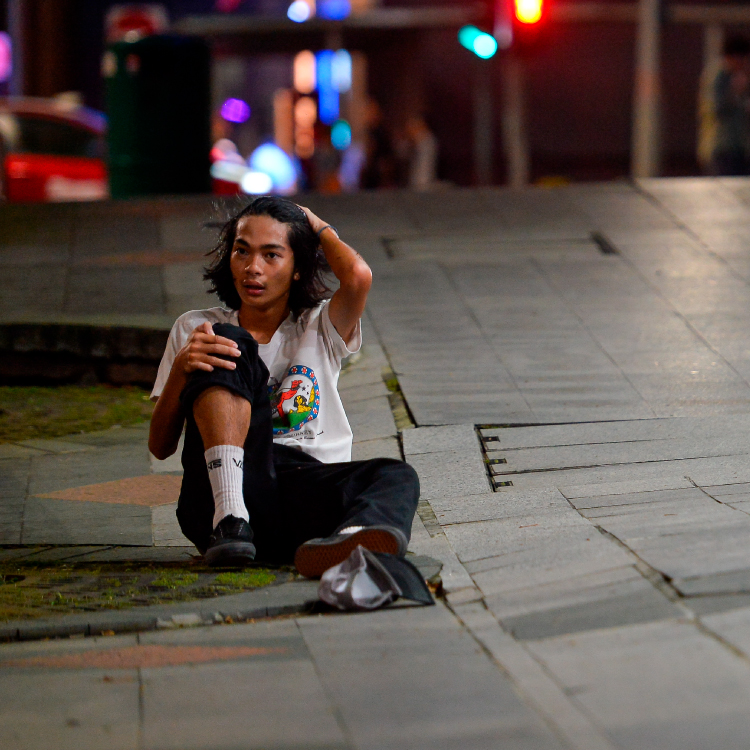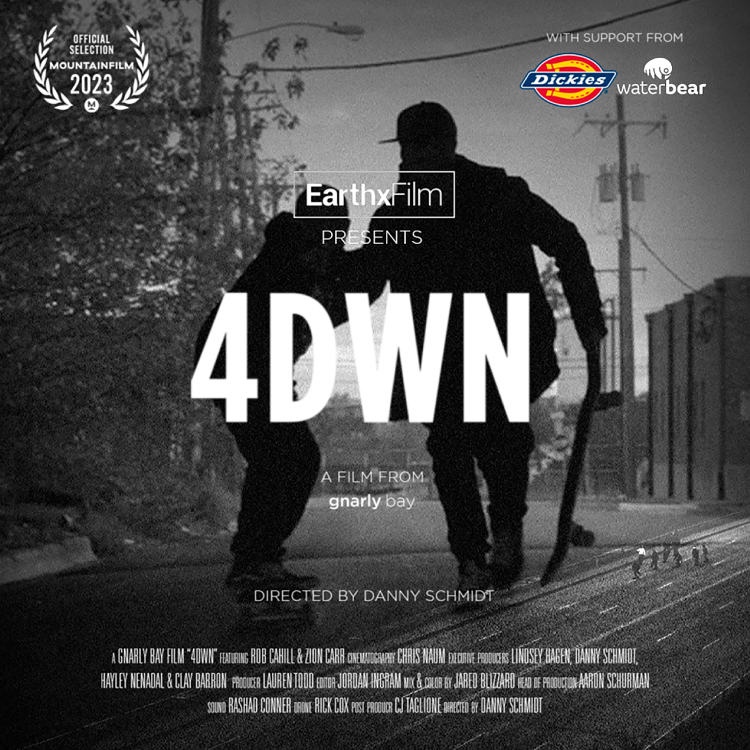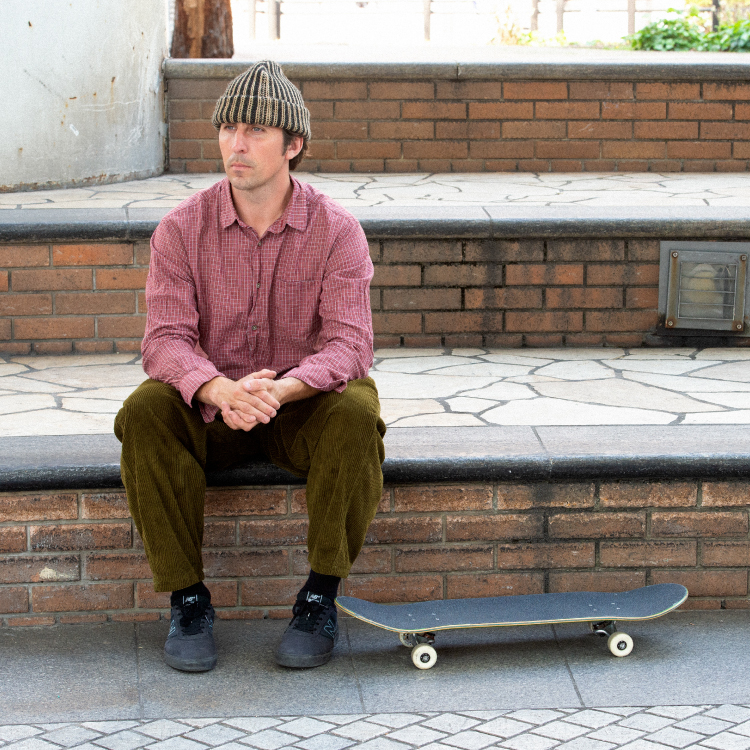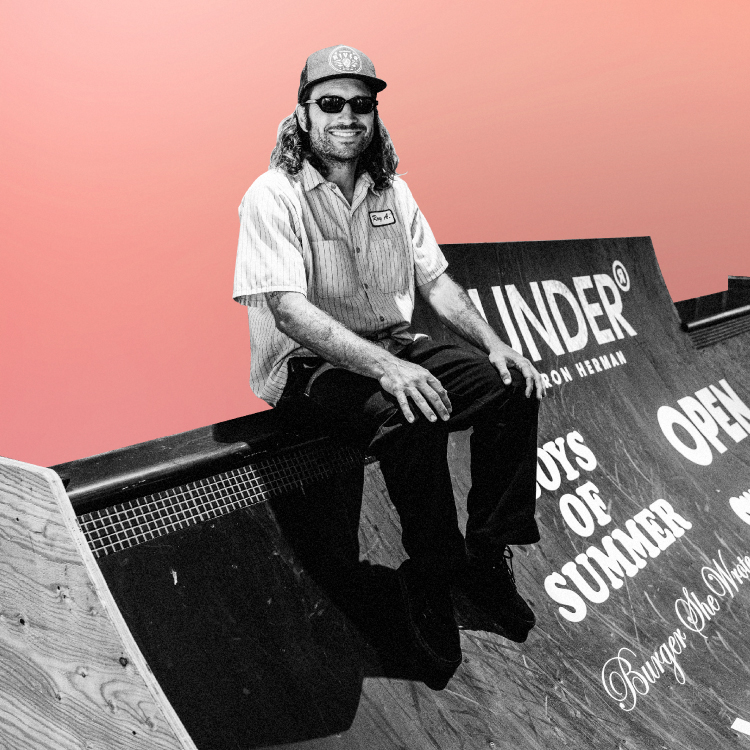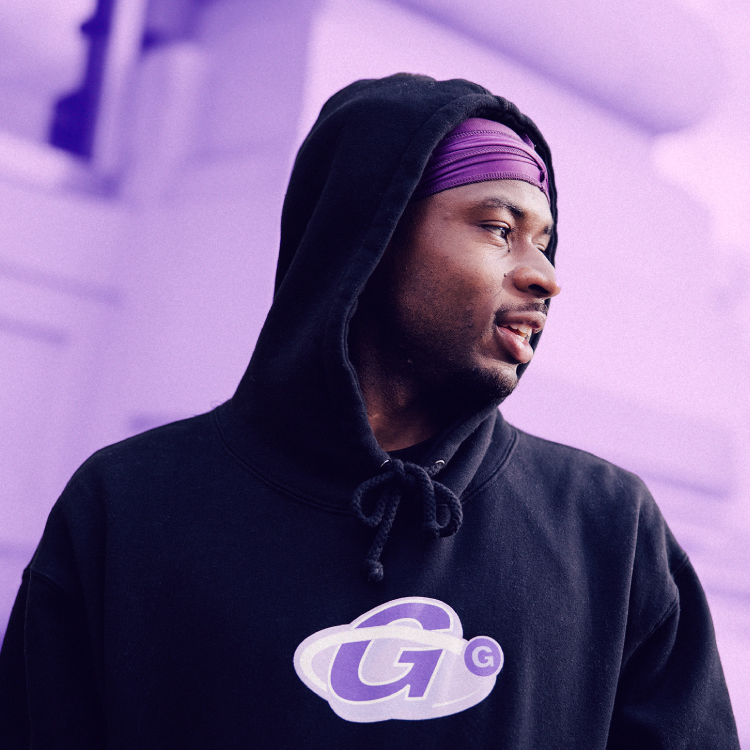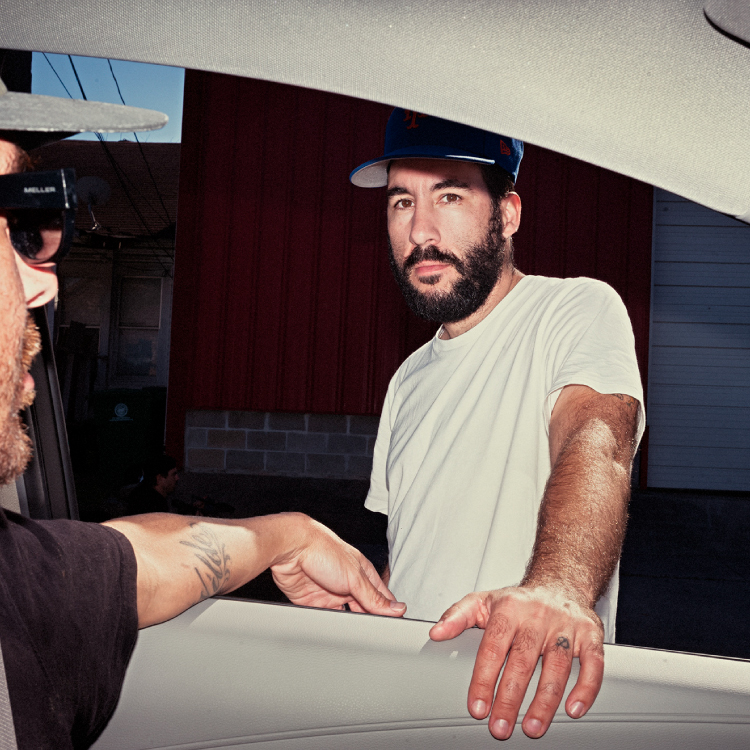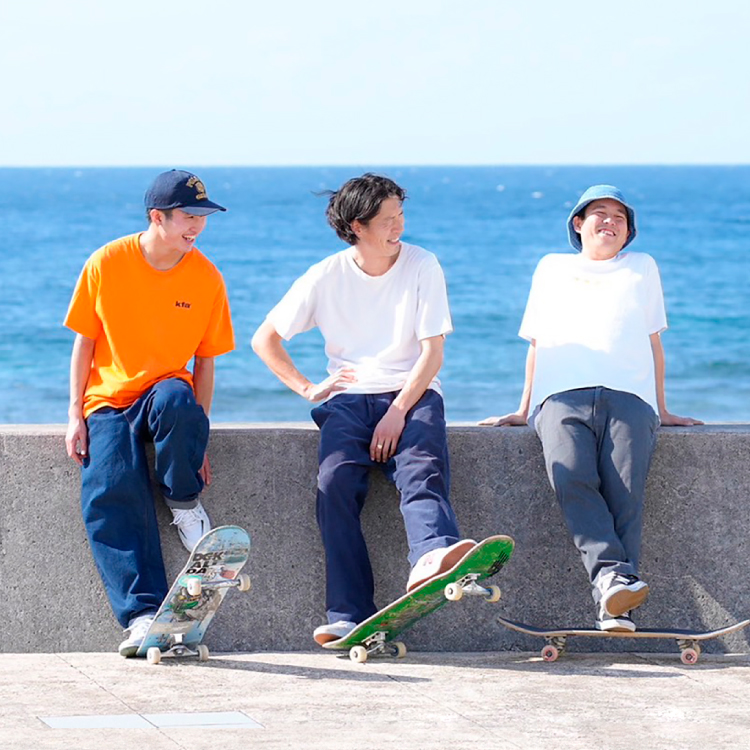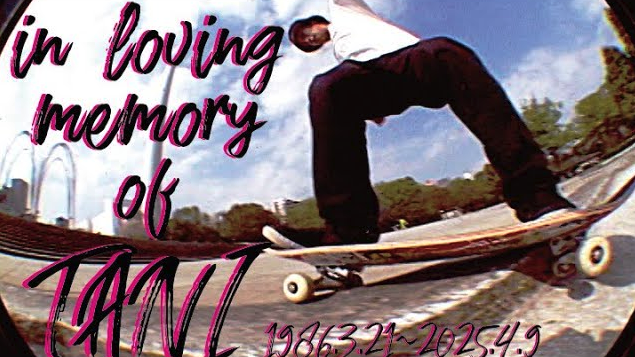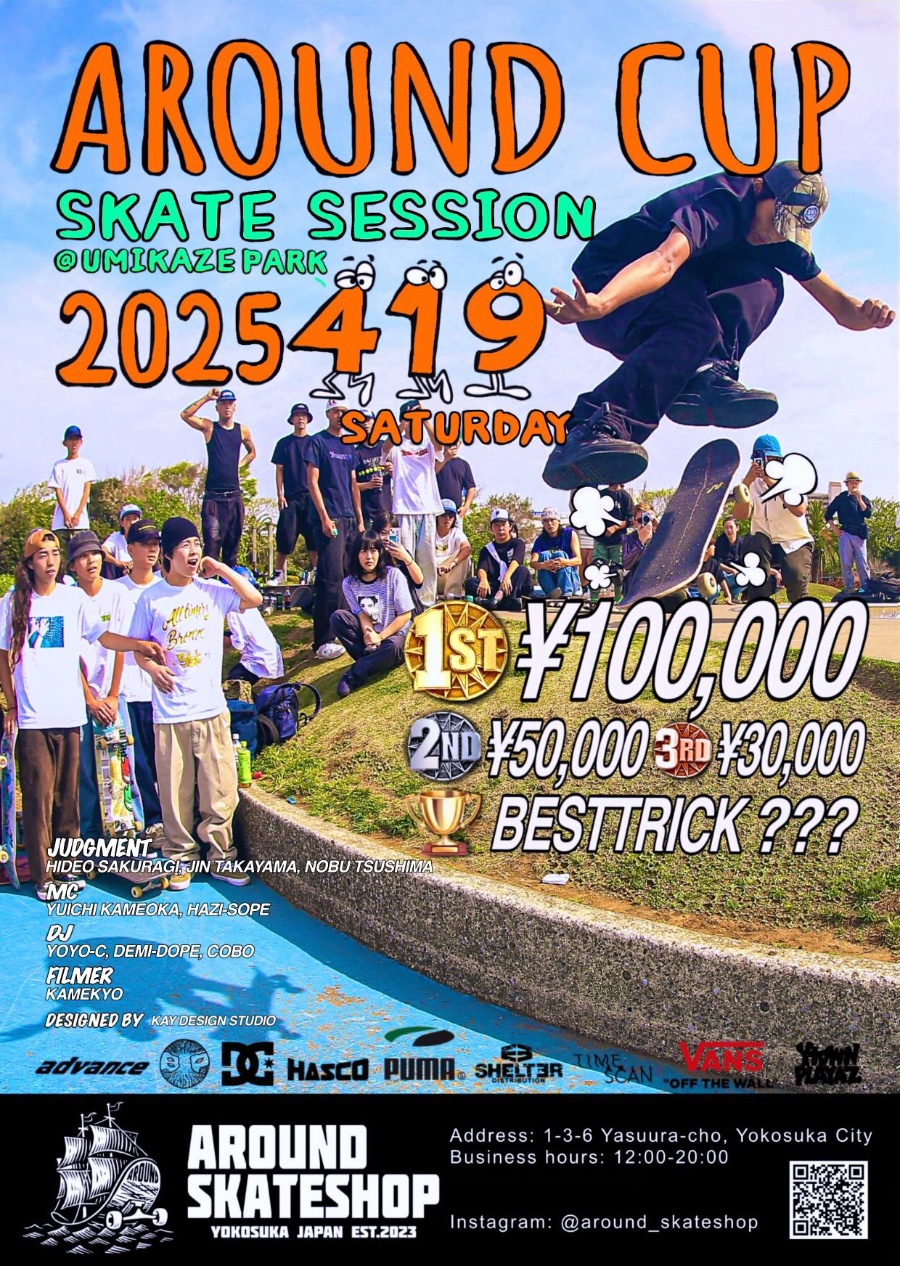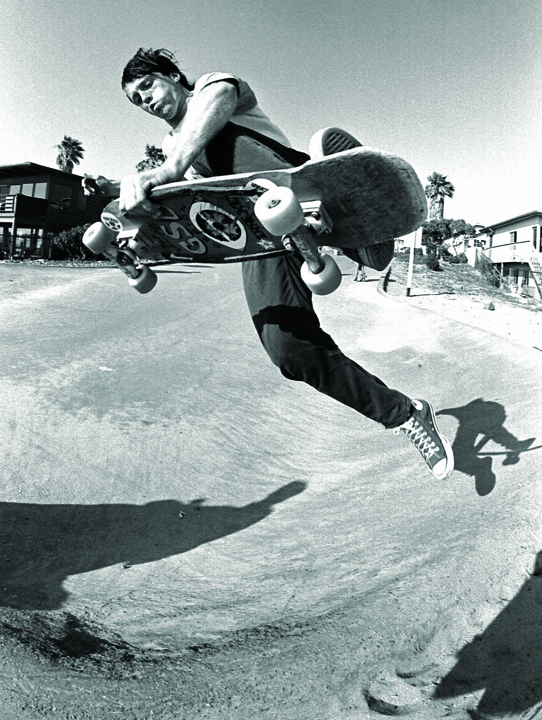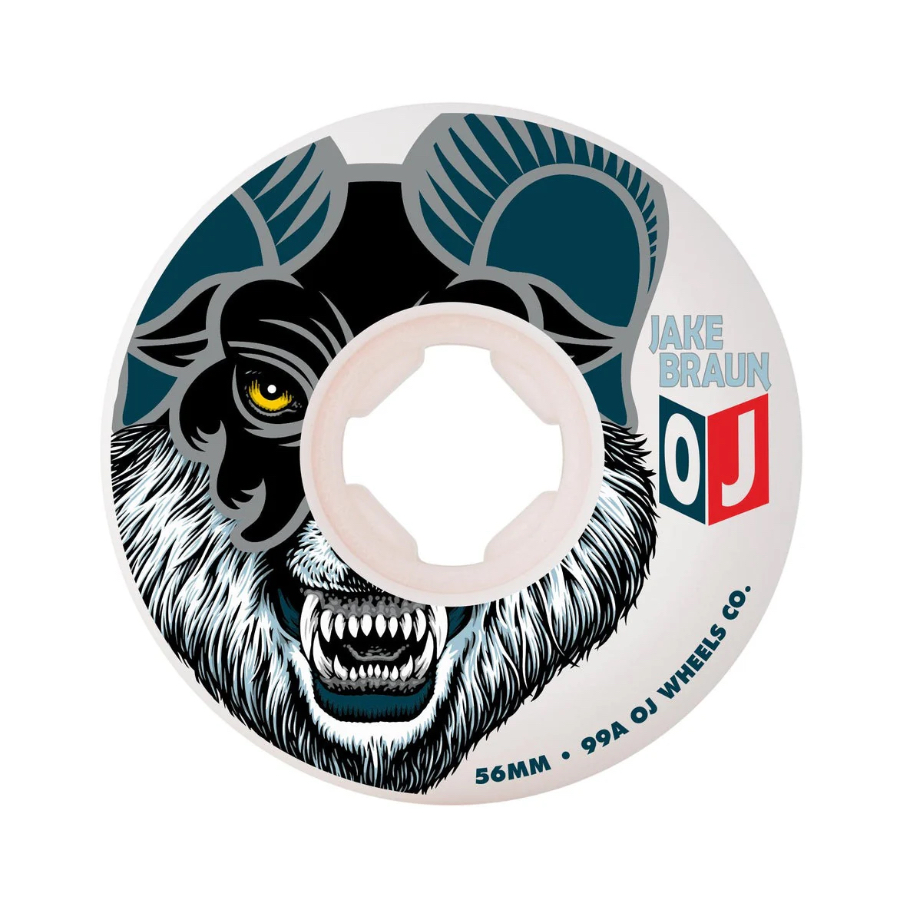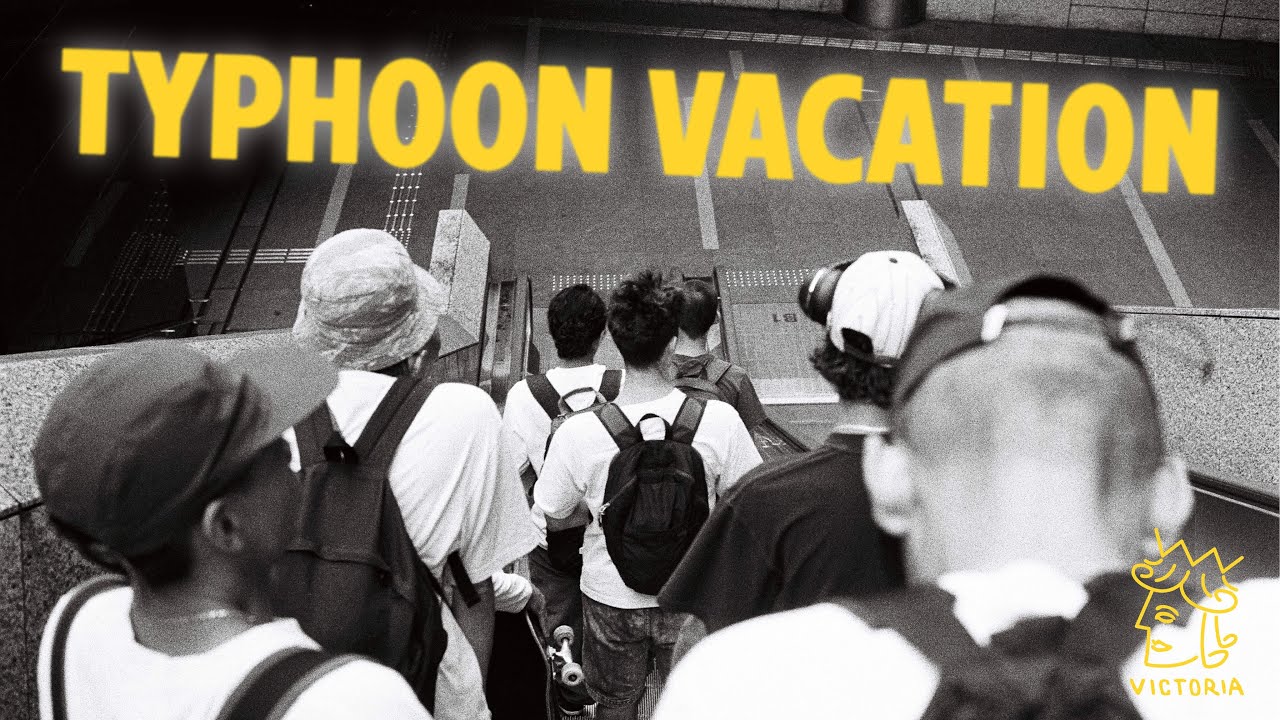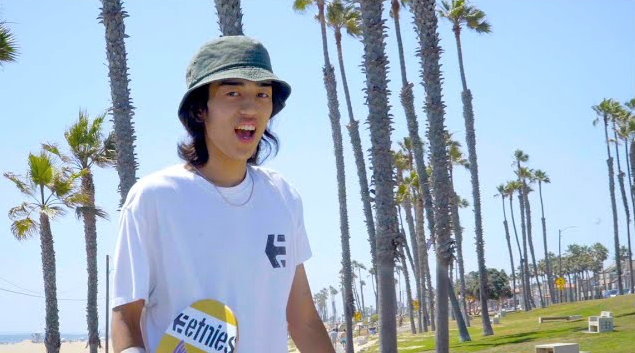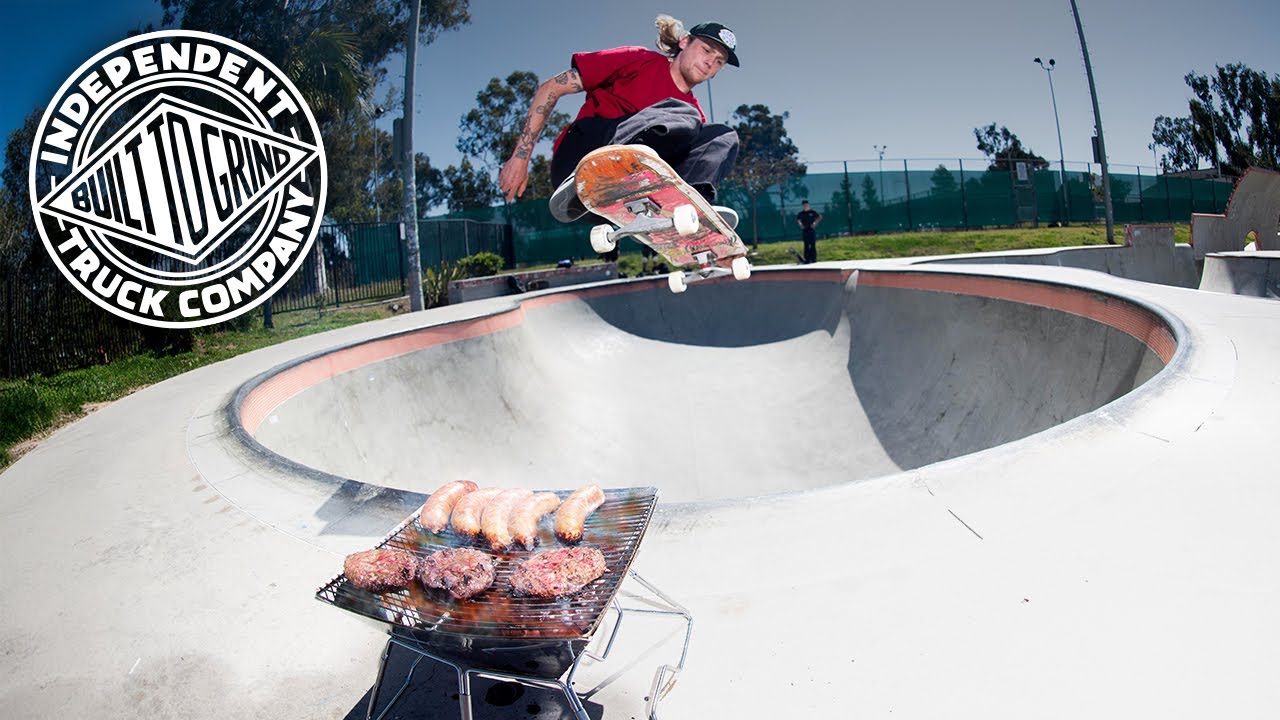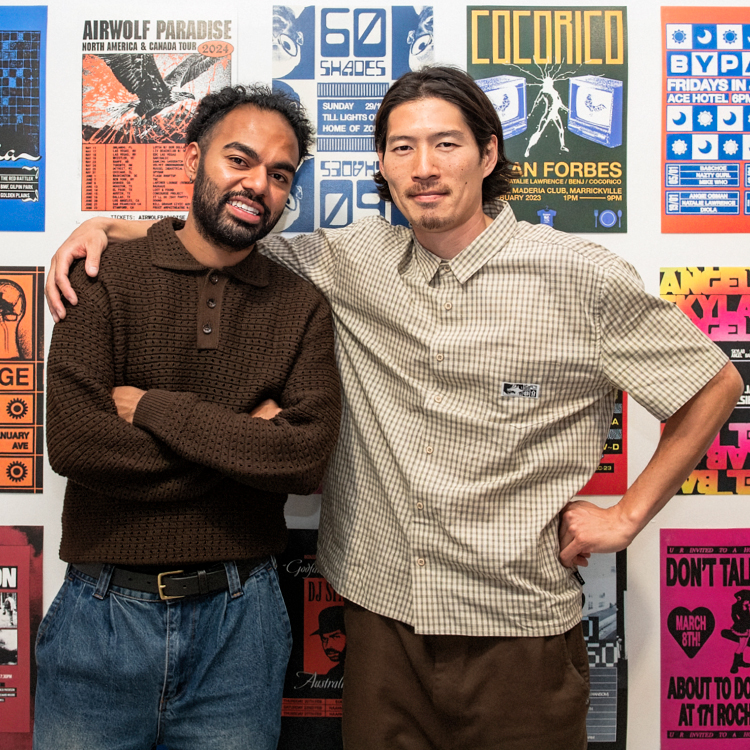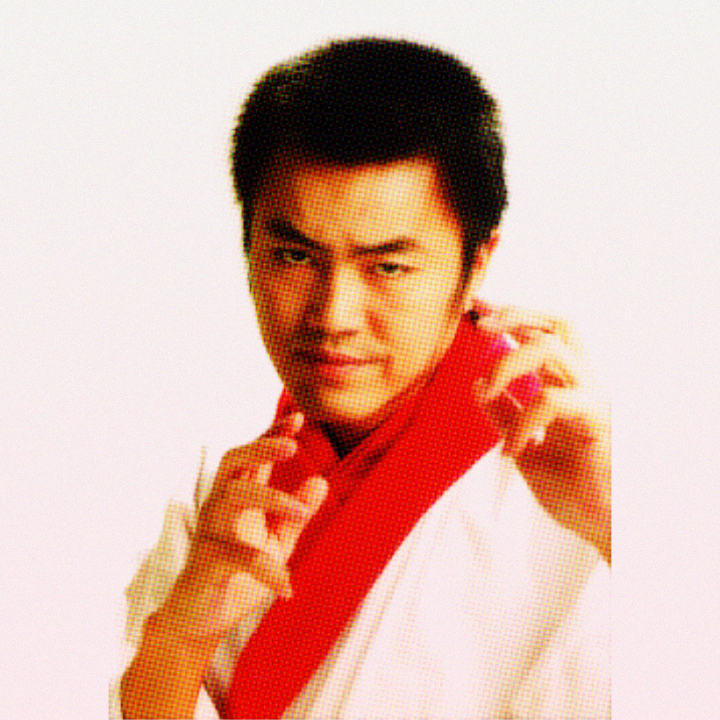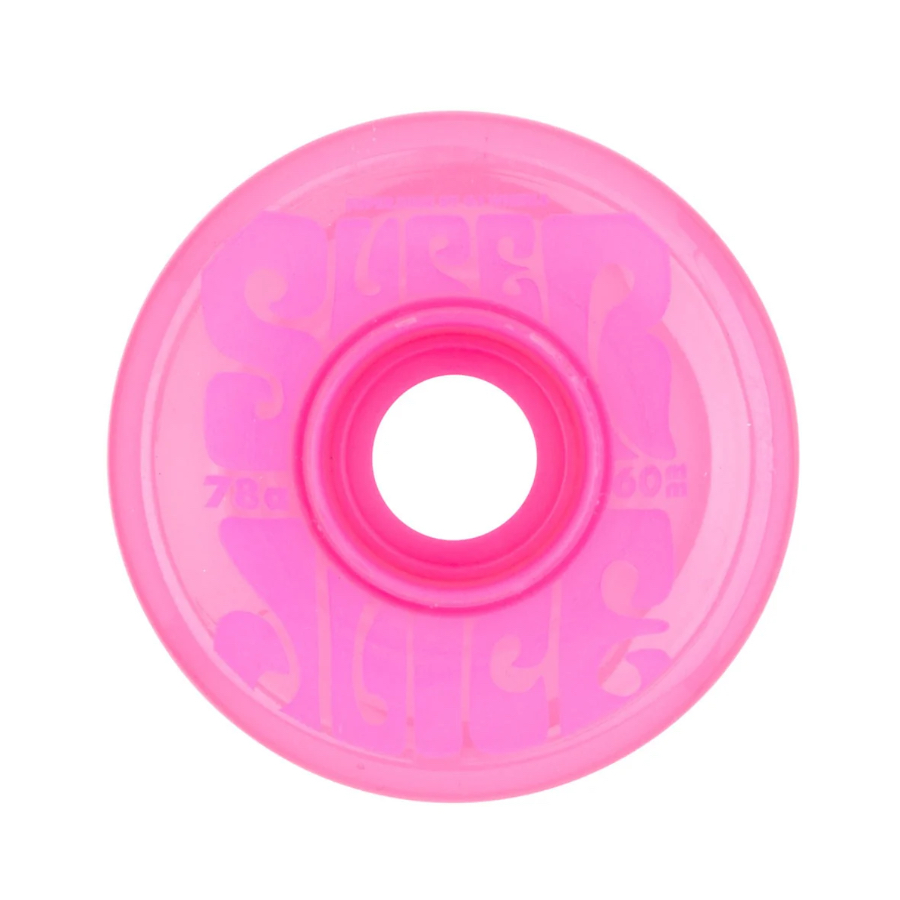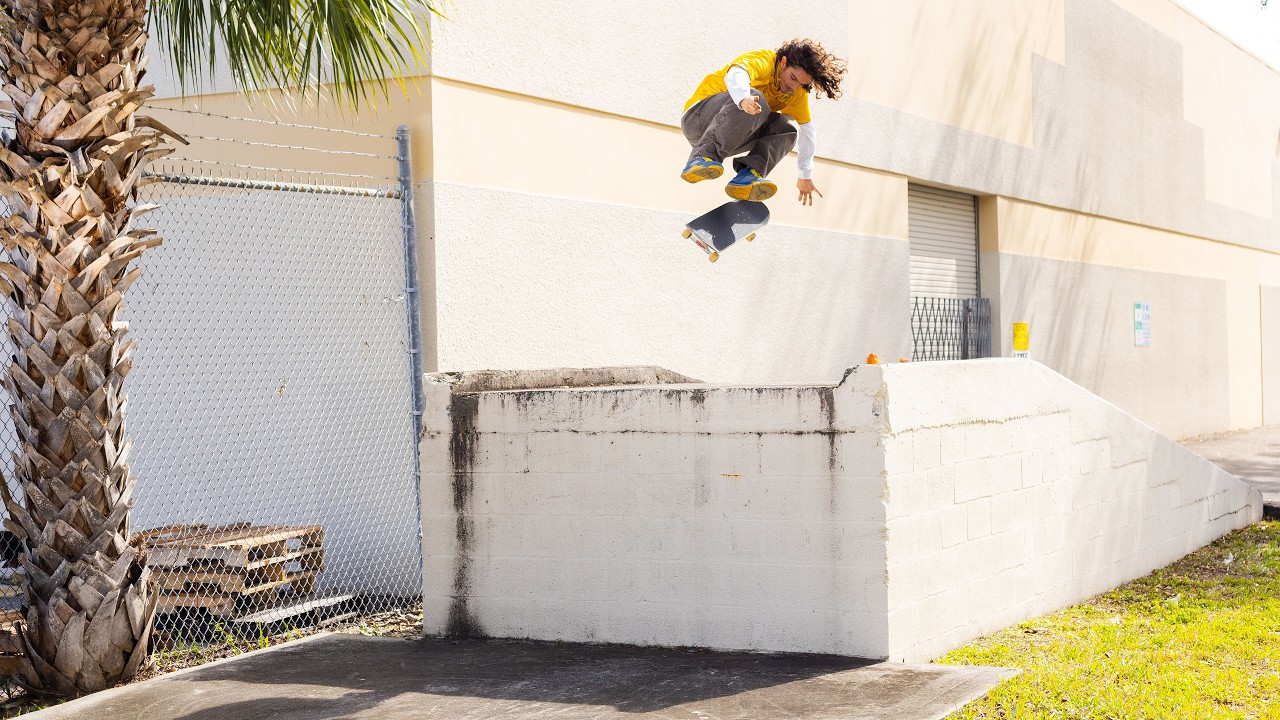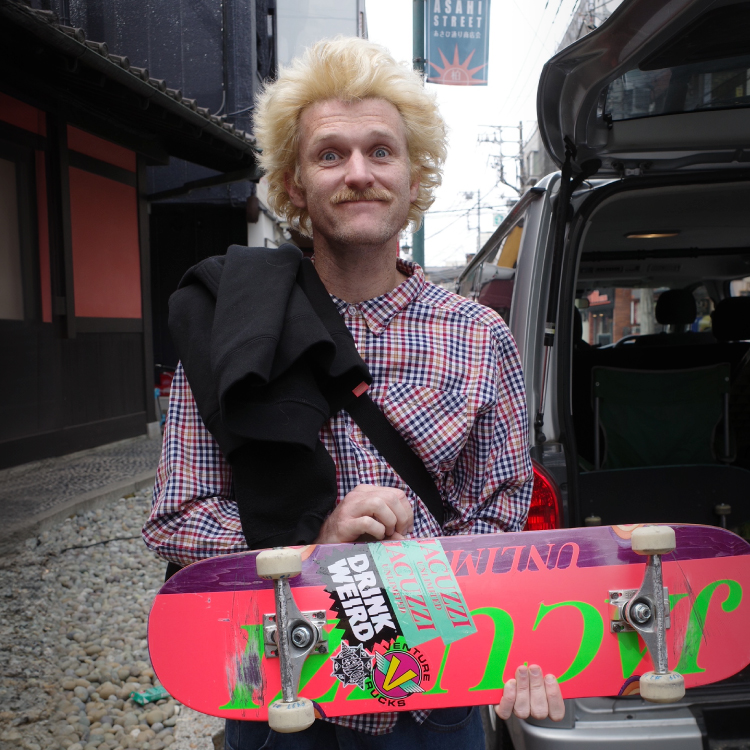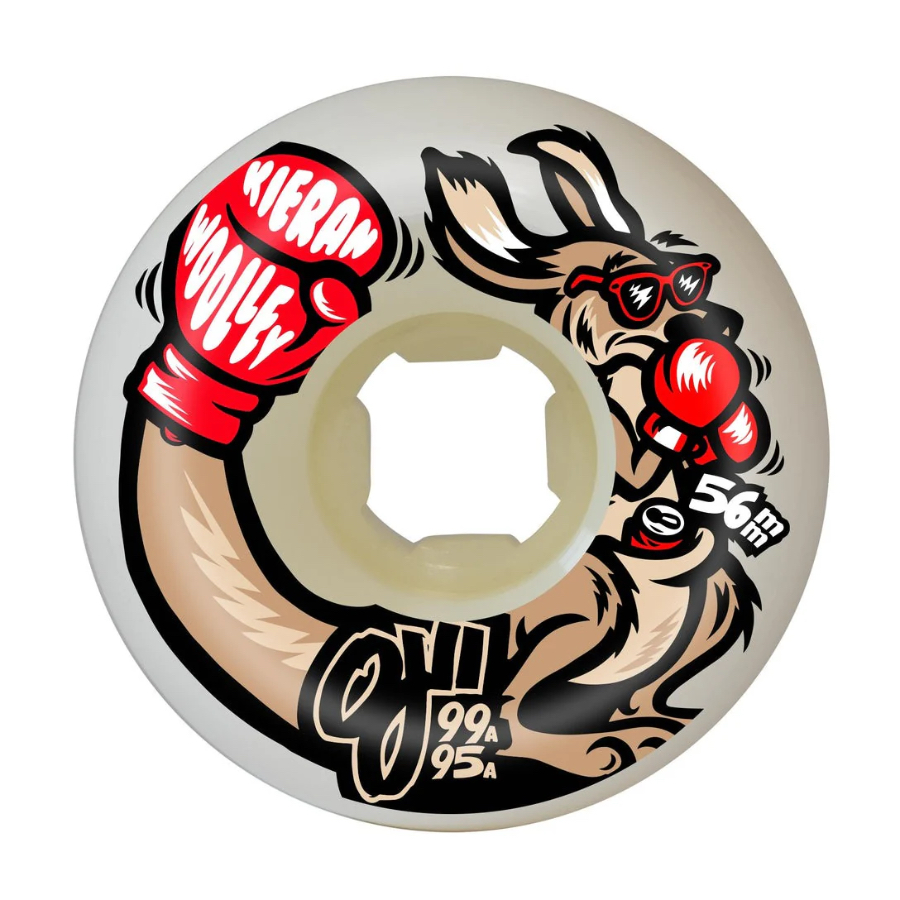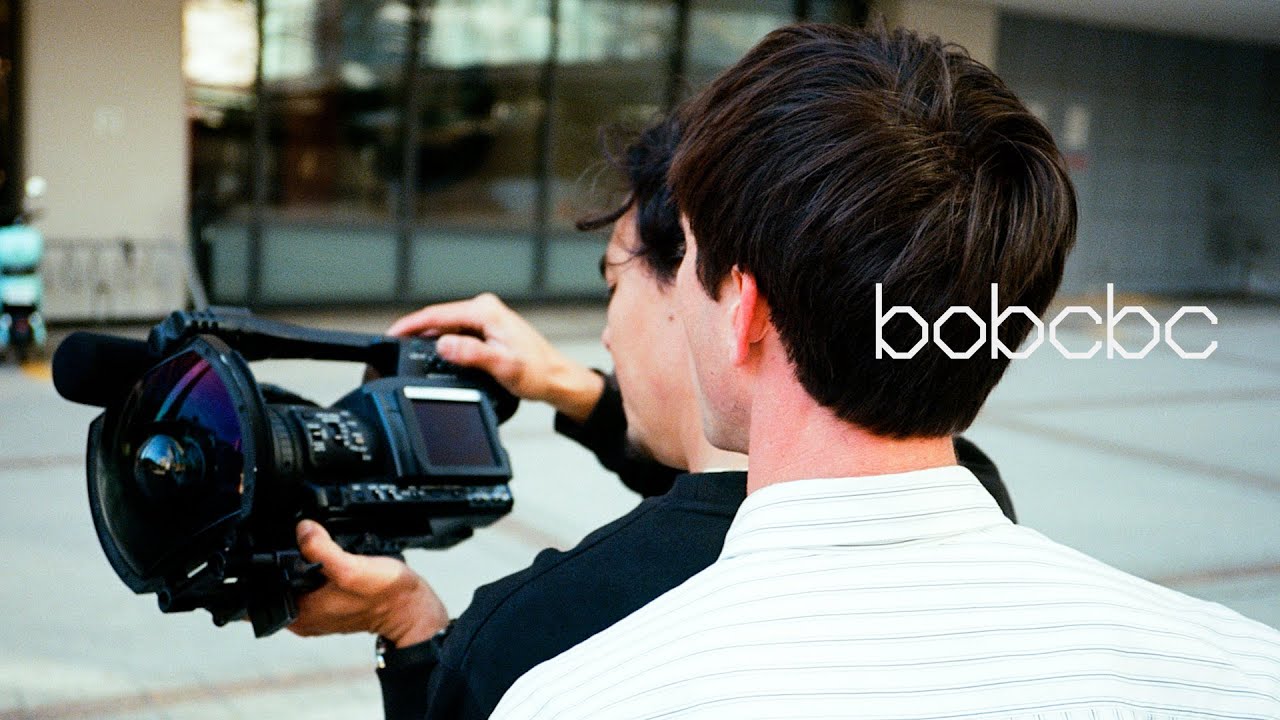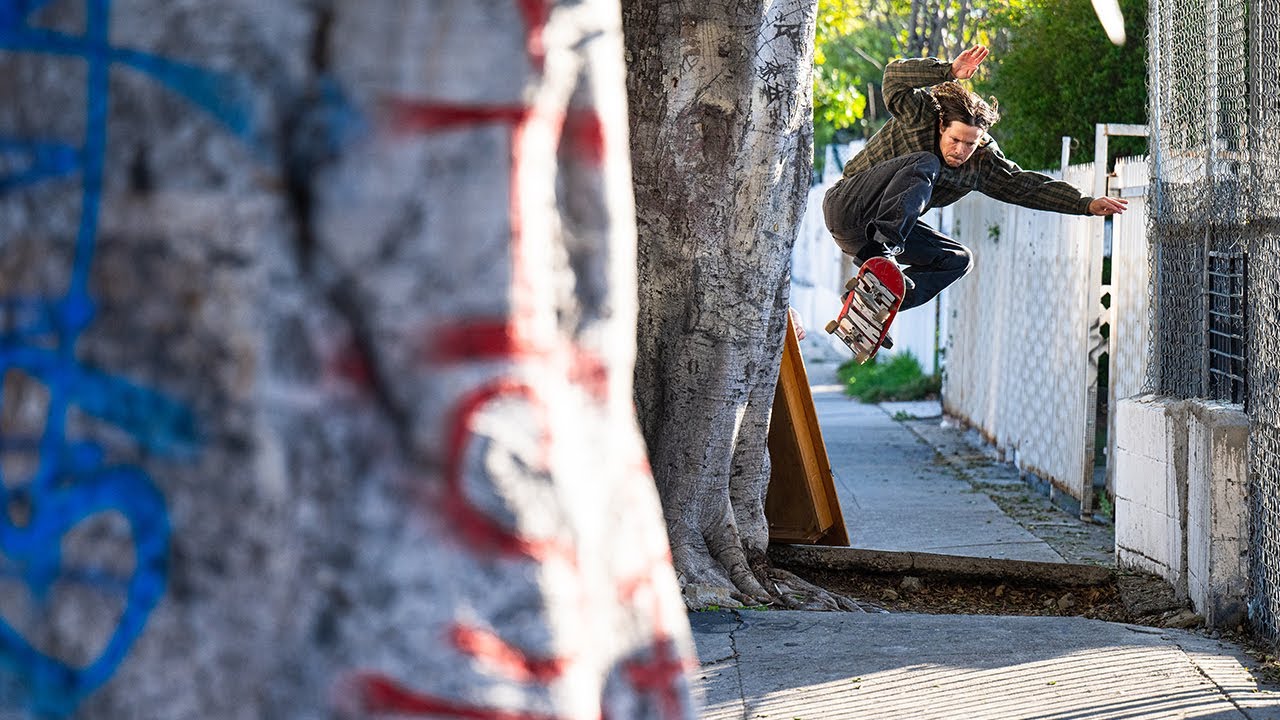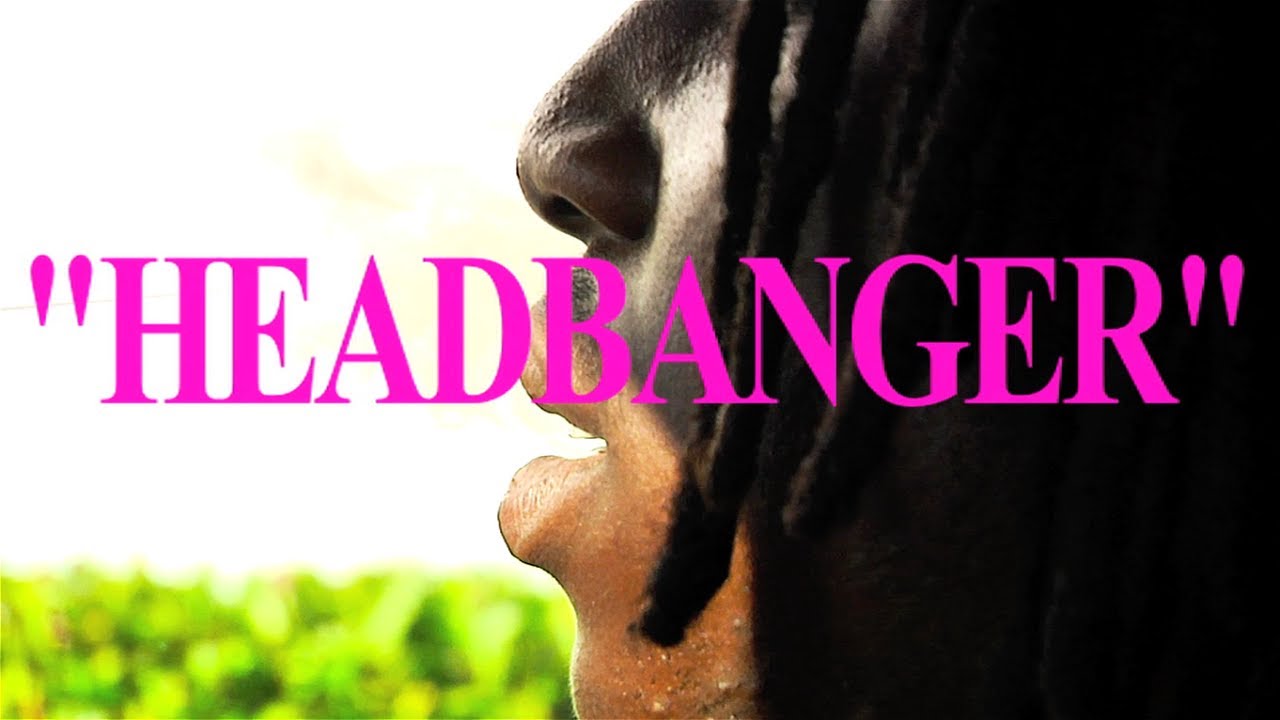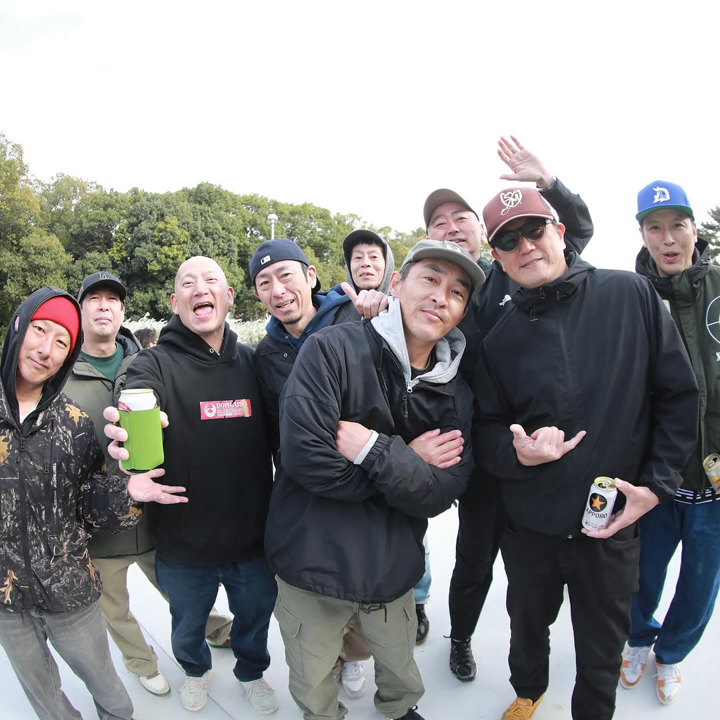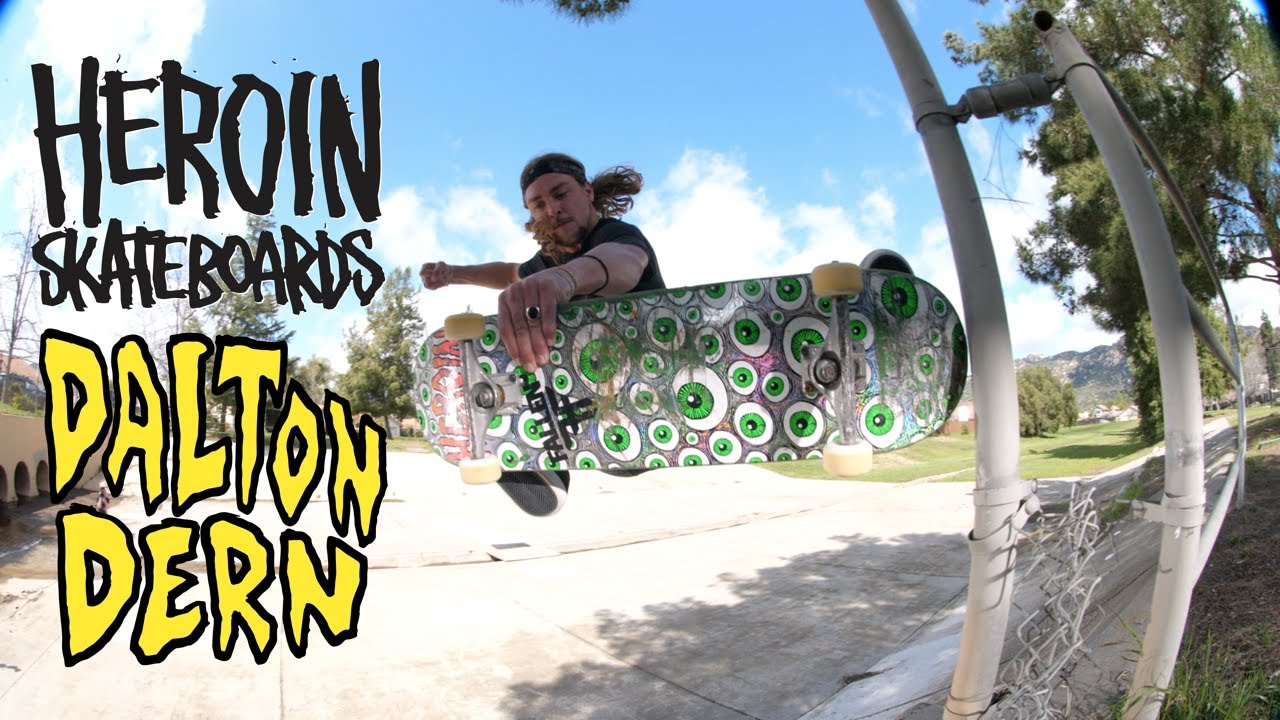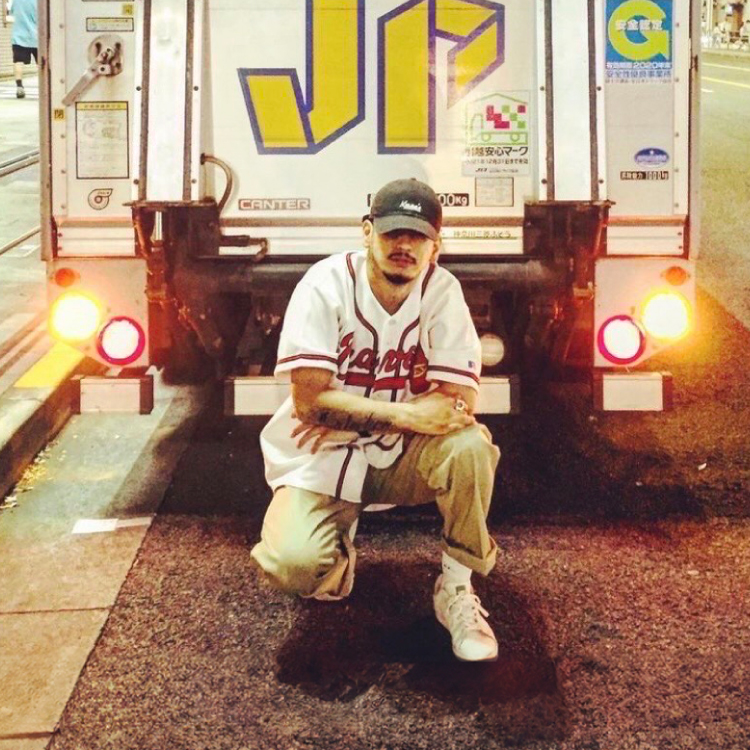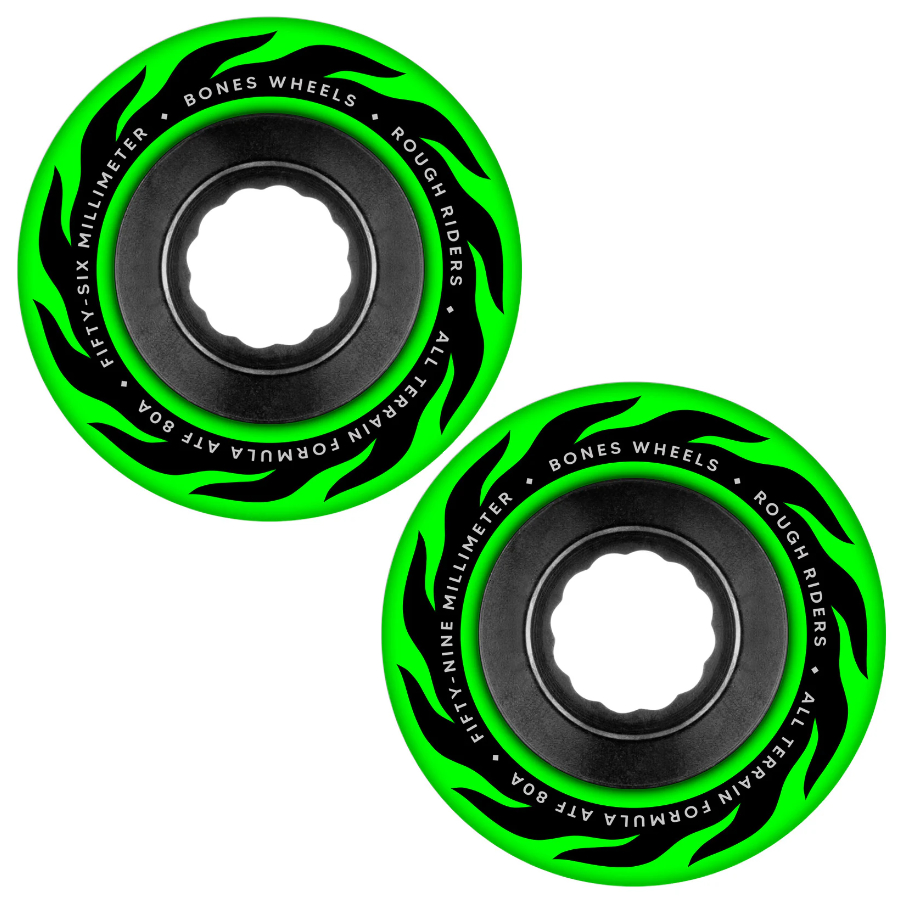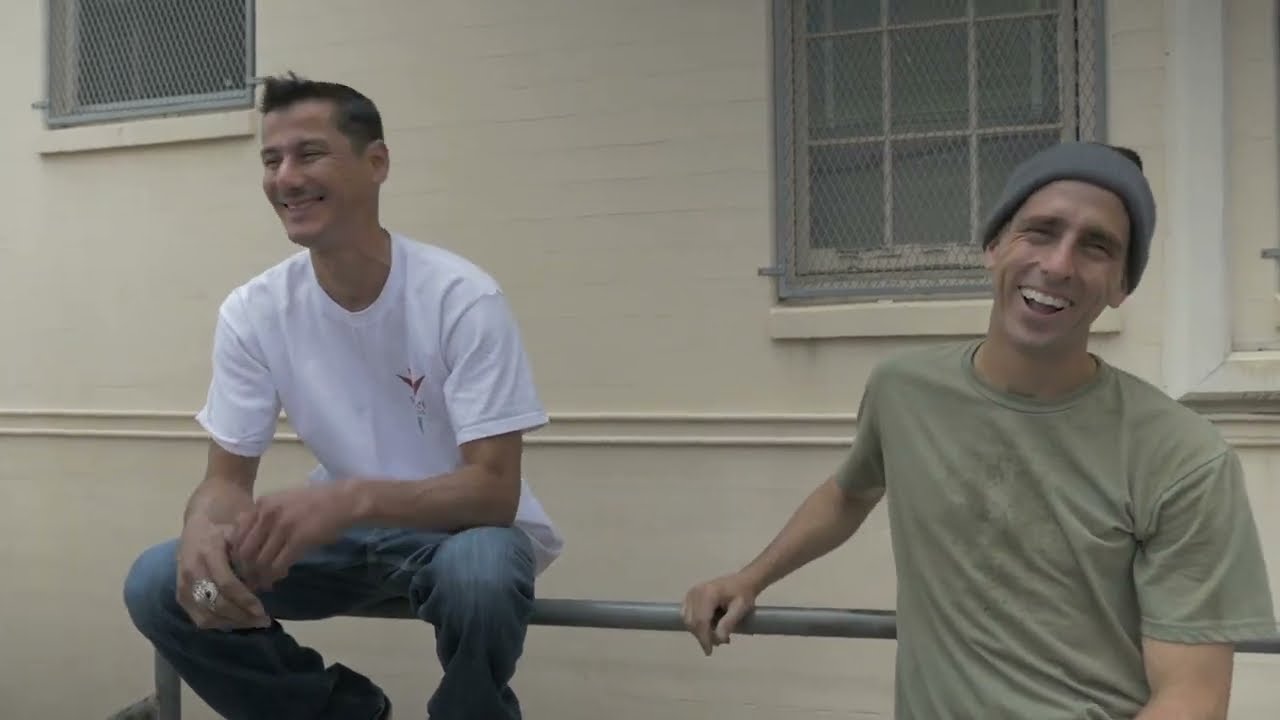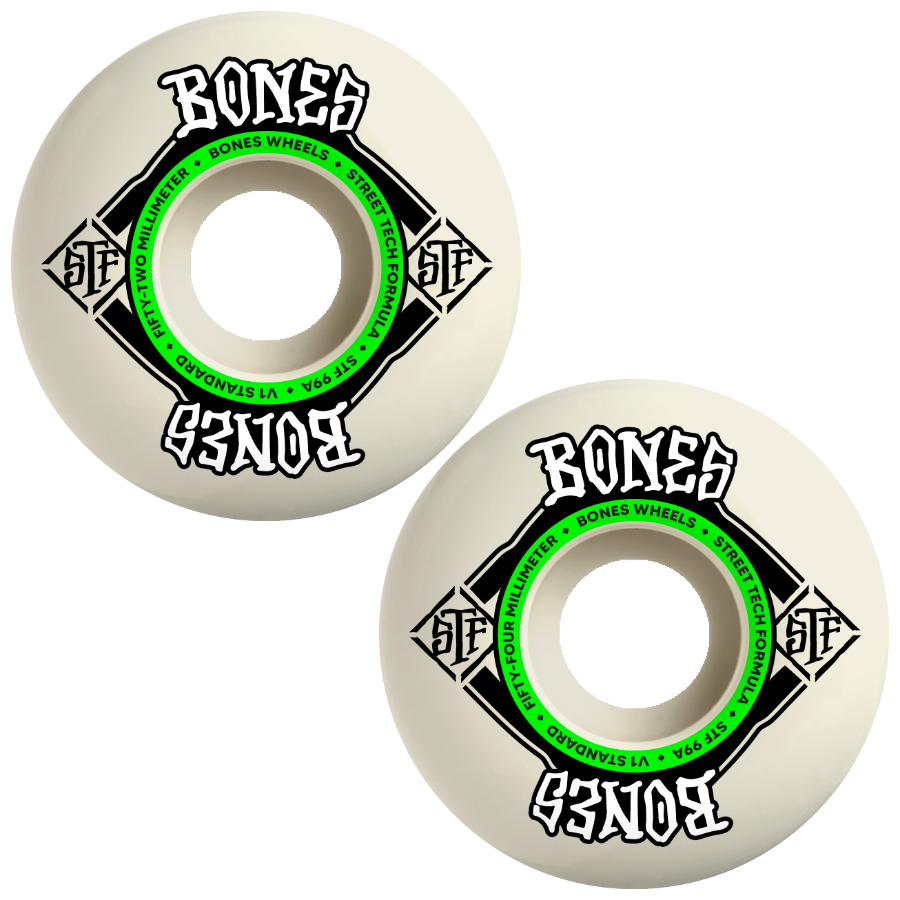Bordeaux's Leo Valls, the face of Magenta approaches skating with a unique perspective and ideas. A great inspiration for creating a city where skaters and other city users can co-exist.
──LEO VALLS (ENGLISH)
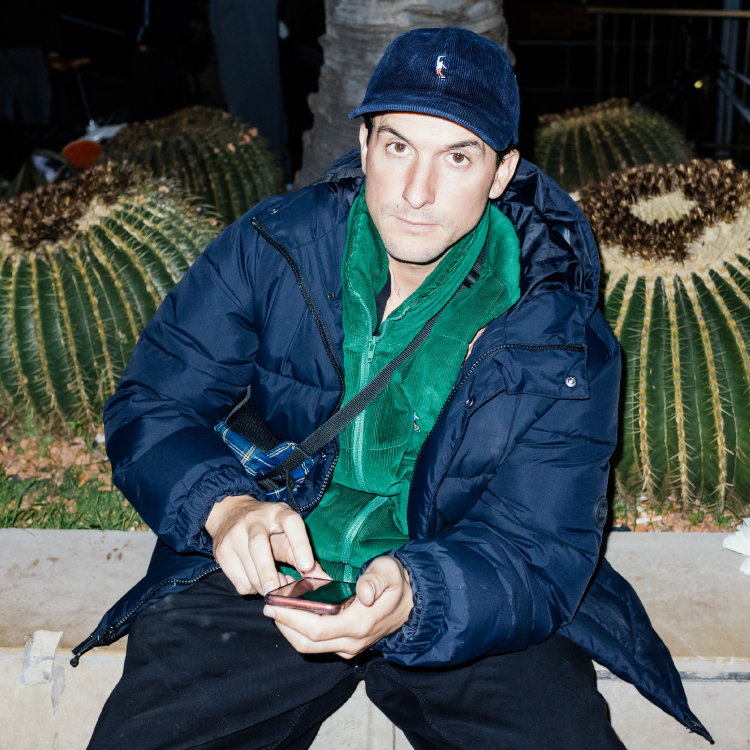
[ JAPANESE / ENGLISH]
Photos_Clement Harpillard
Special thanks_Kukunochi
VHSMAG (V): Hi Leo, it's been a while. Are you in San Francisco right now? I heard you had a daughter, congratulations. Things aren't back to normal with COVID, but how are you doing recently?
Leo Vallls (L): Hey Masafumi! Thank you! I was just in San Francisco and am currently in Los Angeles, visiting friends and family with our newborn baby girl. It's been an interesting last two years with this pandemic, but we are doing great!
V: With the pandemic we're all forced to experience travel restrictions. Has that affected your skating in any way?
L: When COVID happened two years ago, my wife and I were actually taking a three-month trip to different countries and cities and when we finally got home to our Bordeaux base, France went into a full lockdown for basically a year. So I stayed home for a year and skated all my old local spots, filming video parts here trying to see spots in a new way. It was interesting because the city was super good to skate during lockdown. Less people in the streets, and no terraces on our main plazas. It was definitely a different time but I have been fortunate enough to travel the world with my skateboard for more than ten years so it's all good. What I actually miss the most is coming to Japan though. I miss my Japanese friends and skating in Japan. I was supposed to come several times these past two years but each time I had the opportunities the borders closed.
V: What does traveling the world for skating mean to you?
L: It means experiencing cities and meeting people. Definitely one of the best parts of skateboarding, and where you can get the most inspiration. Getting to spend so many hours on the streets of different cities and countries makes you experience the flavor of different cultures for sure.
V: What are some of the best experiences from traveling?
L: Meeting new people and building projects together. That's the most fun.
V: What have you been working on during the pandemic? Has the time of the pandemic led you to do something different and creative?
L: My wife is a yoga instructor and I always promised her that I would get serious about doing yoga but never found the time and motivation to do it. When the pandemic hit, I started doing yoga, stretching and breathing exercises everyday. It felt really good after a few months, and very beneficial for my skateboarding. Then we decided to launch a yoga class and training specialized for skateboarders. It's called Namaskate and you can follow the classes online.
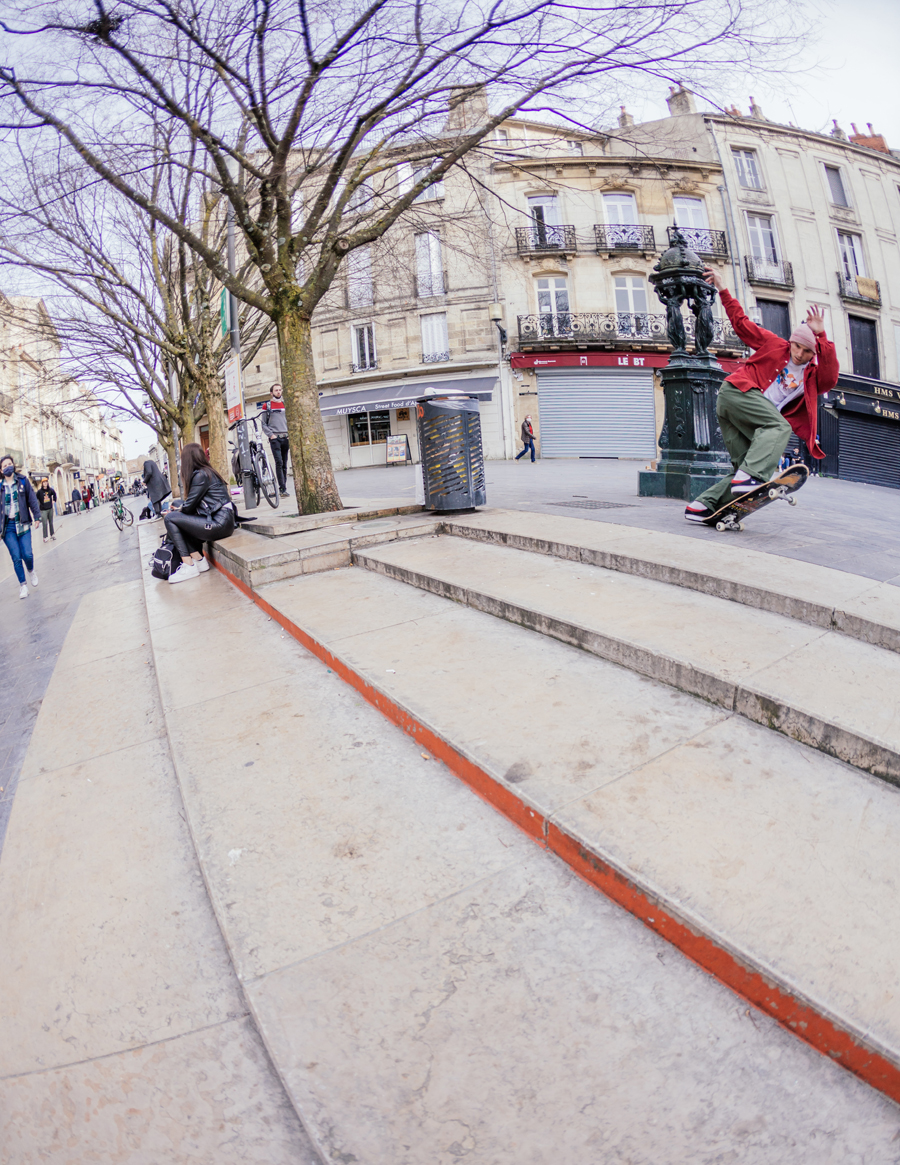
V: You recently posted on IG that you're surprised how many skate stoppers there are in the US. You've been working with the city of Bordeaux to make the place more skate friendly. How did that project start in the first place?
L: Five years ago, Bordeaux was still very repressive towards skateboarding. The city was installing many skate stoppers, and cops could give skaters tickets for skating in the streets. I had the chance to go on a TV news channel to talk about this problem, and the mayor and his crew contacted me for a meeting after that. It was difficult at first, but we got to explain that skateboarding belongs in the streets and that it is beneficial for the development of the city and the youth. It took time and a lot of effort, like organizing exhibitions at some local museums, doing many meetings with the city and the residents that don't like skateboarding, but it was worth it. Skateboarding in the streets is often seen as something negative by many cities, but I believe there is a shift that can happen now. It's not only happening in Bordeaux, but also in Scandinavian cities and more. On top of being a great ecological transportation device, skateboarding in the city is a social and cultural activity that can actually help with many problems that occur in some public places. We did a test for three months where some of the places that were forbidden to skate became allowed again under certain time frames. That worked out and then the city asked us to work on cultural events and on helping integrate skateboarding in the architecture of some old and new spaces around town.
V: Can you explain skaturbanism?
L: Skaturbanism means skateboarding as an integrated part of public space, in a way that skaters and cities can mutually benefit. That means skateboarding being understood as a positive tool for the development of urban spaces, not training facilities or skateparks, but shared public spaces where skateboarding is subtly added into the design and where it can blend with other city uses. I believe a lot of cities in the future will start to understand that skateboarding is a free and urban activity that cannot be contained in skateparks and that it can be positive for everyone when integrated correctly in public spaces.
V: What was most challenging working with the city?
L: To really put everyone around the table and listen to everybody's opinion. We had haters, like rich residents and property owners that were pushing for skateboarding to be fully banned from the streets of Bordeaux, but positive communication and the idea of sharing the city helped our message take over.
V: How did you convince people who don't understand skateboarding at all?
L: By putting skateboarding in a cultural context. By inviting people to exhibitions about street skateboarding and the artistic and cultural aspects of it who don't understand skateboarding. I think that when a lot of people discover that skateboarding is also about sharing experiences, traveling, filming, taking photos, designing etc, they change their point of view about it. I think our skatable public sculptures that got displayed in the streets of Bordeaux helped a lot as well. It is all about how you communicate about it.
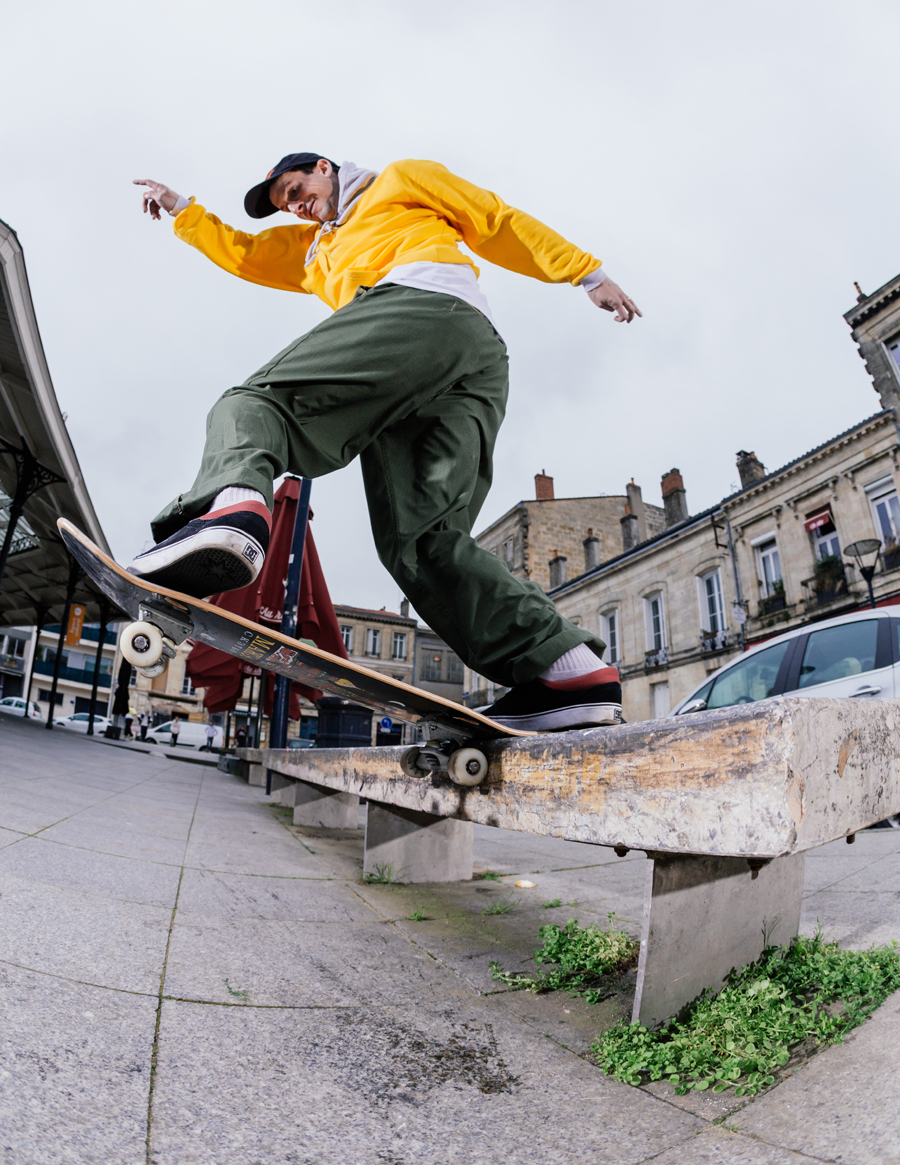
V: What's your take on defensive architecture?
L: That it shouldn't exist because it rejects a part of the population and it changes the very sense of a public space. A public space is supposed to be for everyone, otherwise it is not public anymore, that's why public spaces need to be designed better, and for all.
V: I'm surprised about skatestoppers.com which is crazy. How are skate stoppers affecting public spaces?
L: Private companies like that are promoting the fact that skateboarding and fundamentally playing in the city is dangerous or negative and should be stopped. Skate stoppers send a negative message to the general public about skateboarding and the act of playing freely in the city. Defensive architecture sends a message that the city is only made for going from A to B and consuming, but that using the city without spending money and having fun freely is negative. Skate stoppers are also expensive and represent tax money that could be used to create skate friendly features elsewhere. There are plenty of solutions; you can use the money you use to skate stop a bench to make that same bench strong for skateboarding by using the right material and colors, for example.
V: Ocean Howell had written or spoken about defensive architecture from the skater's perspective in the past. Did you draw any idea or inspiration from him?
L: Yes, I love Ocean, we got to meet and talk together on different panels before. On top of being a legendary skateboarder, he's a gentleman and he can talk about skateboarding and public space really well. His work on urban history and gentrification is also super interesting.
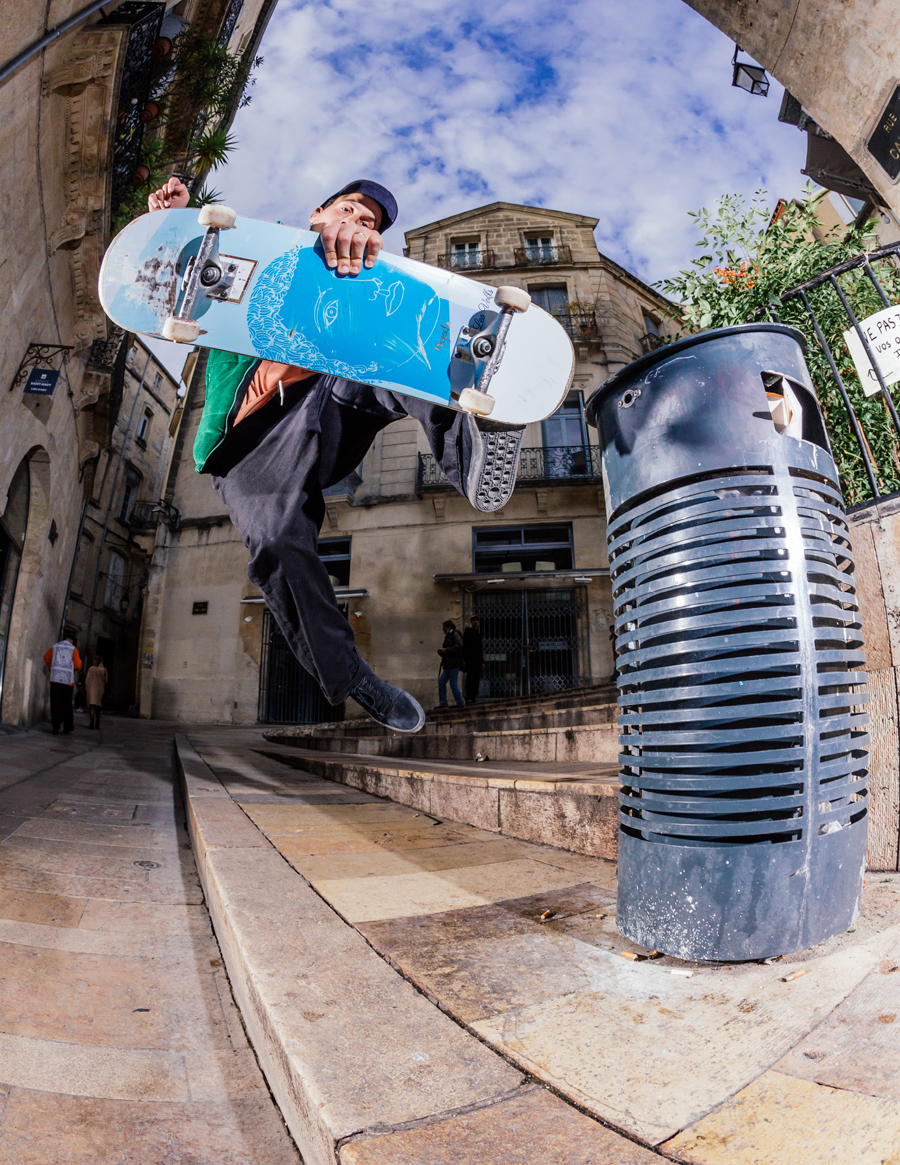
V: How did Bordeaux change with your project?
L: The city went from rejecting skateboarding and ticketing skaters to really trying to find solutions for everybody: We legalized some of the forbidden skate spots, set up skatable granite benches on different public spaces, and remodeled some plazas in order to make them skate friendly.
V: Has the way people look at skating change after you've worked with the city?
L: I think skateboarding is more accepted now in Bordeaux, yes.
V: The plaza you were skating in Bordeaux Exposure 3 is the place you made it skate-friendly, yes? Is that one of the places you worked on? What are the accomplishments of the project?
L: Yes, this plaza is where skateboarding was born in Bordeaux in the 70's. It was skate-stopped in the 90's and basically became a dead zone after that. Last year, we got to remodel it for skateboarding by taking out the skatestoppers, making the ground smoother and the ledges stronger. It doesn't look like a skatepark but like a plaza shared with skateboarding and the city paid for the construction work. Today, people come there everyday to skate, picnic, dance, etc... I'm stoked on how this project turned out.
V: It seems street skating is getting stricter day by day, especially in Tokyo. Maybe that's because skating is getting more attention with the Olympics. Any advice to skaters that are having a hard time street skating?
L: I've been wondering about the Olympics actually. Will it be good for the tolerance towards street skating, or would it make it worse? Will it make cities become more skate friendly, or actually get officials to try and keep skaters only in skateparks since that's how it is being represented in the mainstream? What's for sure is that the majority of skaters will always skate the streets, no matter what. My advice to skaters that want to make things easier in their city for skateboarding is that they need to be able to see things not only from the skaters' perspective, but learn how to put themselves in the shoes of the other city users, and always represent the skate culture in an authentic way. That's key to start working together with the city in order to make things better.
V: Other than raising awareness about making a skate-friendly city, what can we expect from you in the near future? Any project you're working on? Anything with Magenta?
L: Yes, lots in the works right now. I have been working on new video parts that should come out this year. Filmed a new lil documentary piece with DC in California this month. Oh, and we actually just filmed a LA video with some of the Magenta US riders this week. Had so much fun.
V: Last words?
L: AZASS! Hope to see all my Japanese friends again in 2022! Stay safe everyone!
Leo Valls
@leovallsconnected
Born in 1986 in Bordeaux, France. Leo is a street skater who skated for Magenta, DC, etc and is known for his unique style with powerslide variations. He's also known as an activist for the creation of a skate-friendly city.



